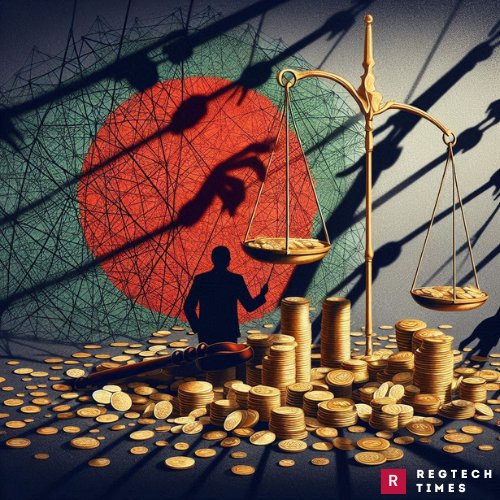Corruption scandals have once again cast a long shadow over Bangladesh, exposing deep-seated issues of malfeasance within its corridors of power. At the center of this storm is a startling revelation involving a former household servant of Prime Minister Sheikh Hasina, whose meteoric rise from a peon to a multimillionaire has ignited fury and demands for accountability across the nation.
The Allegations of Bangladesh Corruption
The saga began with reports detailing how the once humble servant, identified as Jahangir Alam, nicknamed “Pani” due to his former role as a water-bearer, accumulated a staggering $34 million. His alleged methods: leveraging his proximity to power within the Prime Minister’s office for lobbying, manipulating tenders, and engaging in bribery. Such brazen exploitation of influence paints a vivid picture of unchecked corruption in Bangladesh’s political landscape.
Prime Minister Sheikh Hasina, amidst mounting public outcry, acknowledged the gravity of the situation, vowing to take decisive action. However, critics argue that mere dismissal from his post falls short of addressing the systemic failures that allowed such enrichment. The broader implications of Alam’s case extend beyond his individual actions, serving as a reminder of the entrenched graft that undermines governance and erodes public trust.
Broader Implications and Allegations
Beyond Alam, the scandal has unearthed a broader pattern of corruption in Bangladesh implicating high-ranking officials. Former police chief Benazir Ahmed faces allegations of amassing illicit wealth, alongside accusations of human rights abuses during his tenure. Similarly, allegations swirl around former army chief Aziz Ahmed, adding to the litany of accusations against Bangladesh’s elite.
The scale of corruption extends beyond personal enrichment, impacting the effectiveness of governance and the welfare of its citizens. Bangladesh, with its vibrant economy and diverse population, faces significant challenges in addressing these issues. The Anti-Corruption Commission and other oversight bodies play a crucial role in investigating and prosecuting cases, yet their efforts often face challenges in a complex political environment.
In response to these revelations, the Anti-Corruption Commission has initiated probes and frozen assets of implicated officials, signaling a rare instance of accountability in a landscape marred by impunity. However, skepticism persists regarding the sincerity and effectiveness of such measures, especially in a political climate rife with polarization and allegations of selective justice.
Public Outcry and Political Fallout
The outcry sparked by these scandals reverberates across society, punctuated by widespread disillusionment and demands for sweeping reforms. Opposition parties, led by the Bangladesh Nationalist Party (BNP), have capitalized on public outrage, accusing the Hasina administration of perpetuating a culture of corruption in Bangladesh that enriches a select few at the expense of the nation’s development.
Moreover, the scandals come against a backdrop of broader socioeconomic challenges in Bangladesh, where the average GDP per capita remains modest, highlighting the stark disparity between the country’s impoverished majority and its affluent elite. The accumulation of vast wealth by a privileged few amidst pervasive poverty highlights the urgency of addressing systemic inequalities and enhancing transparency in governance.
Path Forward: Reforms and Collective Action
While Bangladesh has made strides in economic development and poverty reduction, the persistence of corruption in Bangladesh threatens to undermine these gains and perpetuate cycles of inequality. The need for robust institutional reforms, strengthened oversight mechanisms, and a commitment to uphold the rule of law has never been more urgent.
While the recent scandals have cast a harsh light on Bangladesh’s governance challenges, they also present an opportunity for introspection and reform. The resolve to confront corruption head-on and build a more equitable society must be unwavering, guided by principles of justice and the collective aspirations of all Bangladeshis for a better, more prosperous future. Only through collective action and unwavering resolve can Bangladesh chart a course towards a future where integrity and fairness prevail over the shadows of corruption in Bangladesh that have for too long loomed large.


